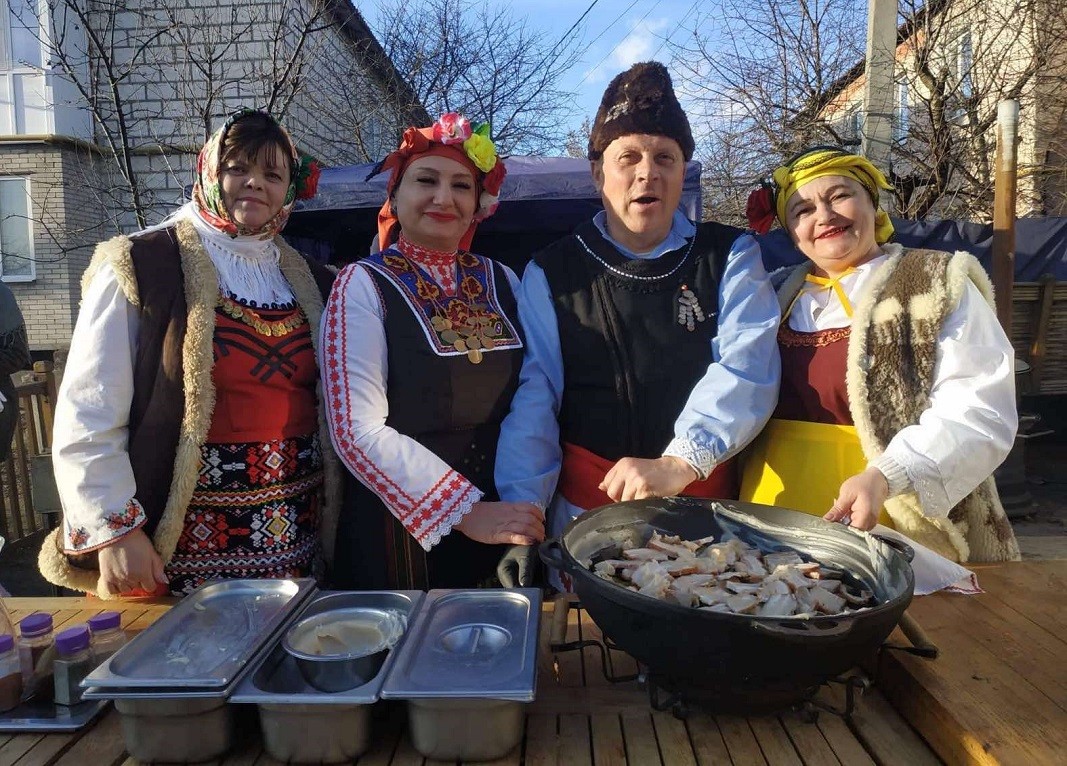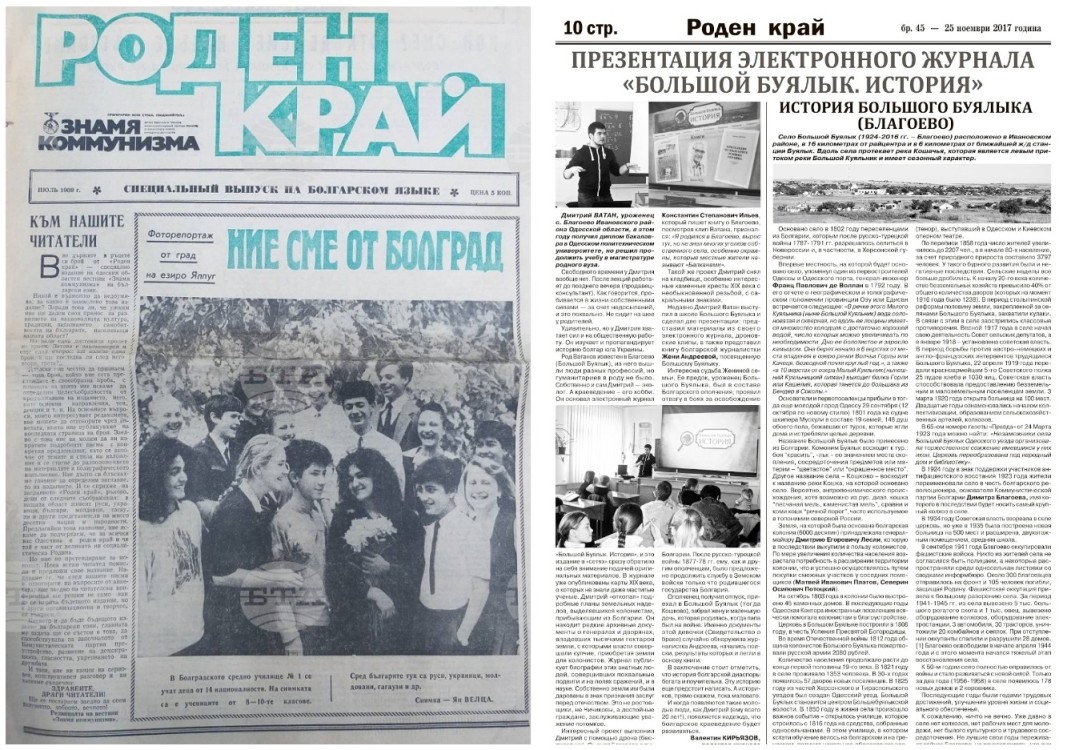The war which has been raging in Ukraine for close to half a year has forced Europe to make a number of decisions and choices that have been put off for years, and has changed the lives of millions on the European continent. More than 7 million people have fled Ukraine since the start of the war, data of the UN refugee agency as of the beginning of June show. The number of registered Ukrainian refugees in this country since the beginning of the war is over 110,000, with 78,289 remaining as of the beginning of June. However, there is no information how many of them are Bessarabia Bulgarians, what we do know is that the Bessarabian Bulgarian community in Ukraine comprises between 250,000 and 500,000 people.

The community is recognized by Ukraine, it has its representatives in the local authorities, and its own newspaper – Roden Kray (Native Land), distributed by subscription to reach every corner of Ukraine.
“The newspaper started coming out in 1989. In that time, right up until the start of the war in Ukraine on 24 February this year, it has never once stopped coming out. Its financing was provided entirely by Ukraine, but the war put a stop to everything,” says its editor-in-chief Dora Kostova. We talked to her during her first time in Bulgaria since the outbreak of the war.

The last issue of the newspaper was printed on 19 February, and reflects public sentiments right before the war, as well as the events in the cultural life of the Bulgarian community in Ukraine:
“We knew there could be a war though we did not believe it would happen to the last. Peace rallies were organized at a number of schools. We published an article to mark International Mother Language Day on 21 February. We also wrote about the day of Trifon Zarezan in the country - the day of vine-growers and wine-makers. We told the story of Petar Gabe, father of poetess Dora Gabe, a Jew who emigrated to Bulgaria from Ukraine to become a publicist and a prominent figure in public life in Bulgaria.”
Though the newspaper has stopped coming out, Dora Kostova says she has never stopped helping Bulgarians and Ukrainians in need. They come to her for help in emigrating to Bulgaria or to another European country:
“The office of the newspaper in Odessa was turned into a centre for social assistance. My own telephone continues to be a “hotline” for evacuation questions and questions about the procedure in different countries. We have been rendering psychological support to anyone who seeks our help on the spot, or by telephone.”

And that is how things will be until the situation in Ukraine allows Dora Kostova’s team to start releasing Roden Kray once again. Meanwhile, the newspaper was presented at an exposition at Bulgaria’s National Assembly, dedicated to Bulgarian media outlets abroad which, according to data of the Bulgarian news agency BTA, are currently 45 in number in 22 different countries.
The 147th anniversary of the liberation of Sofia from Ottoman rule was celebrated with a historical re-enactment in the capital's North Park. "The re-enactment recreates the three battles of the villages of Sarantsi, Dolni Bogrov and Vrazhdebna and..
The Sofia Zoo proudly announced a record number of animals born in 2024. "Our wolf pack grew by nine wolf pups. We welcomed a baby zebra, kudu antelopes and several giraffe calves. We also had additions from the primates, the Asian small-clawed..
In 2024, Bulgarians actively used the Google search engine to get informed about topics reflecting what was happening in the world and in this country. Bulgarian athletes once again proved that they can inspire and arouse national pride. That is why..
The Federation of European Carnival Cities has declared Pernik a global center of masquerade traditions. 16 years ago, Prenik was named the European..
On 25 January 1935, Tsar Boris III signed the decree establishing the Bulgarian National Radio. The document, which officially marked the beginning of..

+359 2 9336 661
